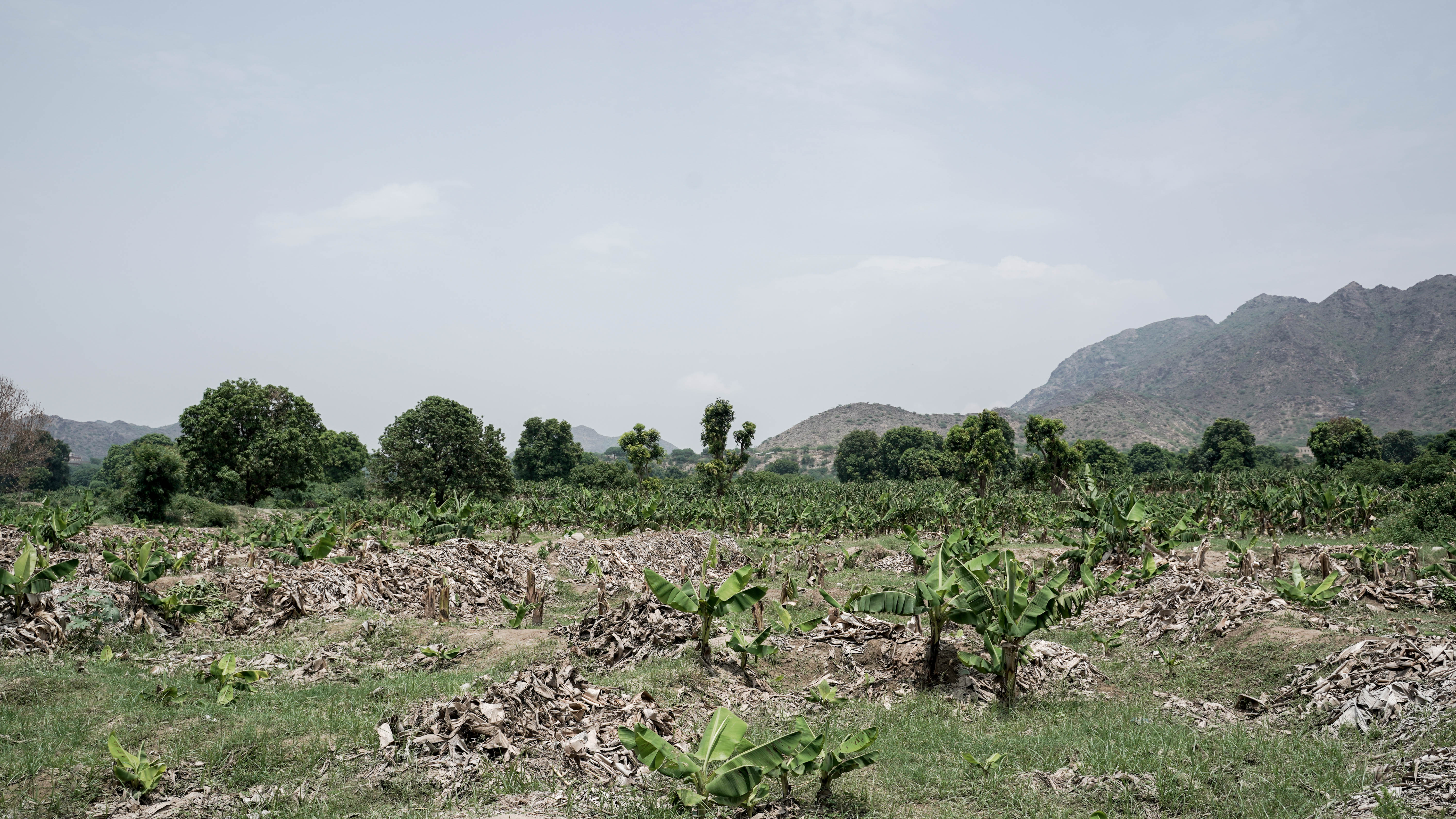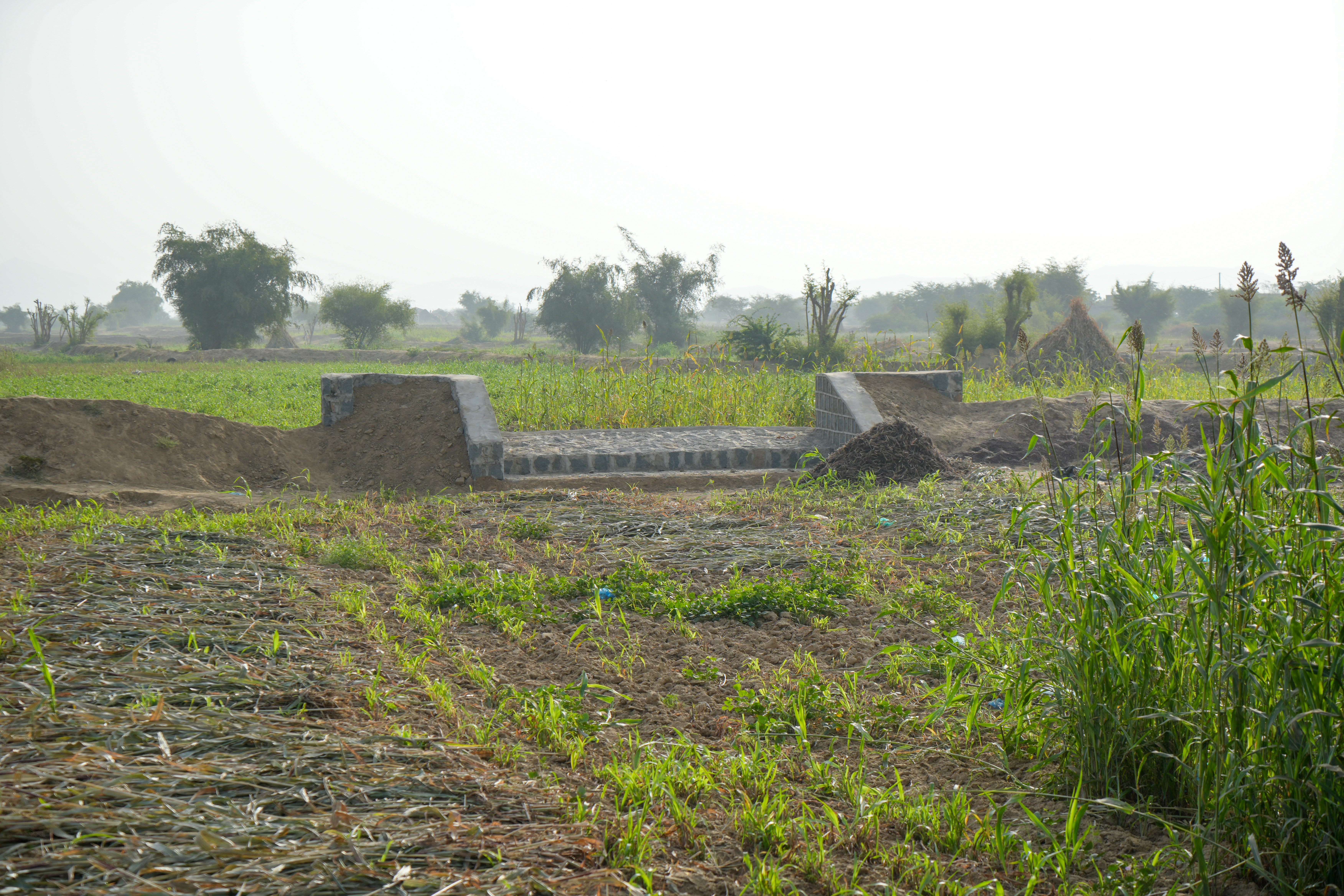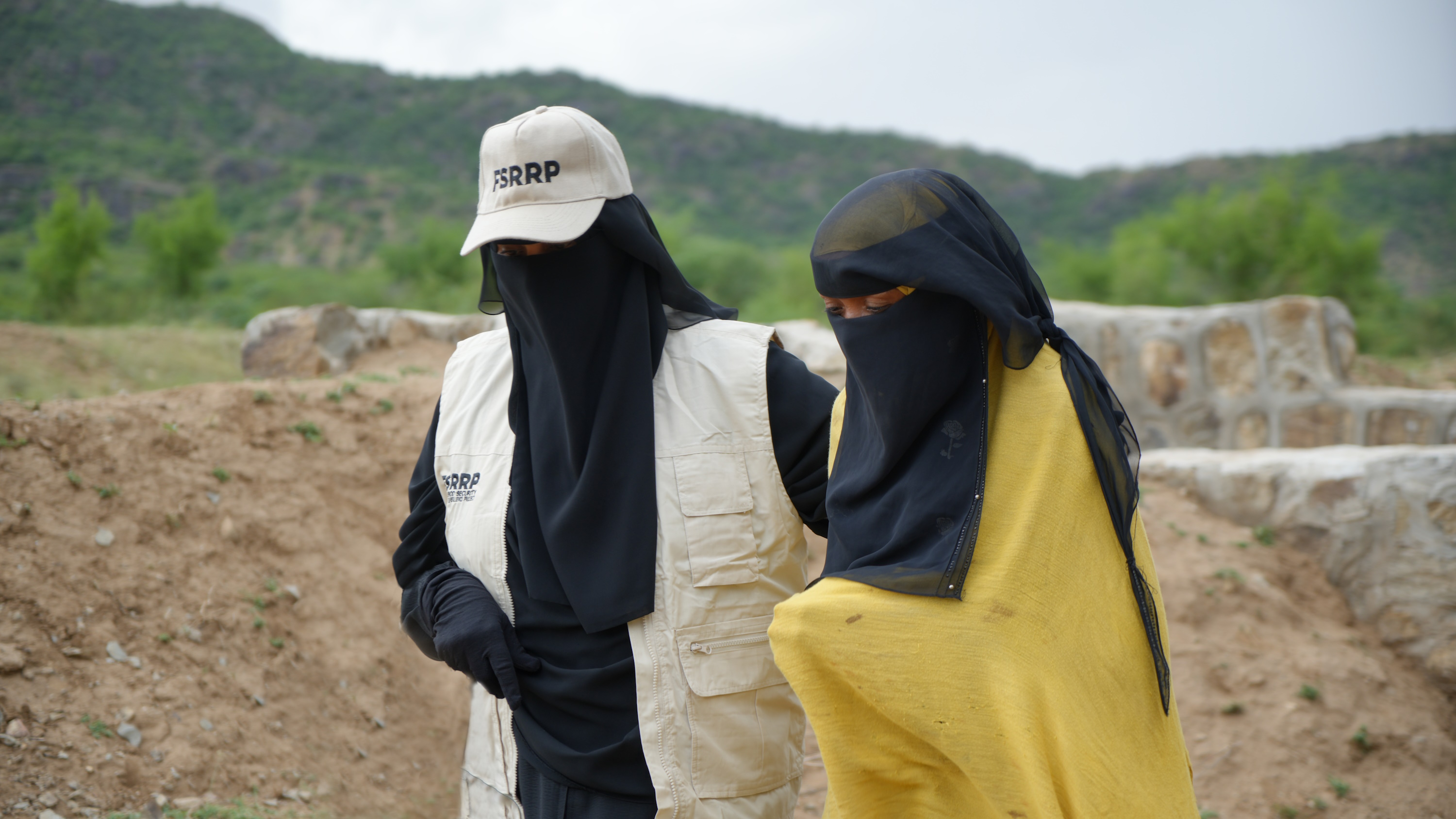FSRRP interventions transform agricultural production in Yemen
Building resilience: Supporting farmers to face the impact of climate change in Yemen
February 13, 2024

Climate change has negatively affected Yemen’s farmlands due to shifting weather patterns, heavy rain, intensifying droughts, and rising temperatures, driving food insecurity even further.
Climate change in Yemen is hitting hard, stressing the vital agriculture sector with erratic weather, rising temperatures, and droughts. This worsens the existing food crisis, leaving millions hungry.
Floods and rising temperatures
In Hodeidah Governorate, climate change has delivered a double blow to agriculture, with intense floods ravaging farmlands and scorching heatwaves decimating crops across Al-Sukhnah and Al-Mansouriyah districts. This devastating combination has further exacerbated the already dire food insecurity situation in the region.
Funded and supported by the World Bank, the United Nations Development Programme's Food Security Response and Resilience Project (FSRRP) is responding to the crisis by contributing to protecting and restoring agricultural lands to improve food security in the area. FSRRP is implemented in partnership with the Social Fund for Development (SFD) and the Public Works Project (PWP) to build agricultural climate resilience and improve household food security and basic economic recovery.
Restoring assets
SFD carries out several interventions in Hodeidah as part of the FSRRP project: constructing water reservoirs to facilitate complementary irrigation and to provide water to livestock, as well as irrigation spillways to regulate and improve rainwater irrigation, ultimately contributing to improved livelihoods and food security. The project restores public assets that have become impaired due to flooding, to mitigate the impact of climate change and improve food security and the living conditions of local residents.

Many spillways were constructed in Al-Sanif village to regulate water flow between farms, mitigate the impact of floods and eliminate the risk of erosion during the rainy season.
Empowering women farmers
"The construction of spillways has had a huge impact on farmers. They prevent soil erosion caused by torrential rains that used to wash away both crops and soil,” says Salamah Youssef, a farmer and local resident of Sanif Al-Monasarah, Al-Mansouriyah District. “The project also preserved farmlands and improved irrigation," adds the 35-year-old mother of five.
She explains that land degradation and soil erosion had left her unable to grow anything at all. “I had resorted to collecting firewood and selling it for a meagre profit, barely enough to provide one meal a day for my children,” says Salamah.

Farmer and mother of five, Salamah Yousef, working on her farm in Al-Salef Village, Hodeidah Governorate.
Things are different today. "I feel so content seeing my farm irrigated well and without my crops at risk of being washed away,” says Salamah. “Now I can grow corn, millet and sorghum safely – and multiple times in a single agricultural season.”
“My life has changed for the better. I have expanded my farm considerably, with crop productivity increasing and a steady supply of food available. We eat what we grow at home as well as using it as fodder for livestock."
Combating drought and climate change
Sudden and significant climatic changes in Yemen are impeding food security efforts, largely due to flooding and torrential rains that have damaged so much land, as well as droughts-induced desertification.
The Food Security Response and Resilience Project is tackling water scarcity caused by climate change by building five complementary irrigation and livestock rainwater harvesting reservoirs in the villages of Belila and Al-Misbar, Al-Sukhnah District, Hodeidah Governorate.
"These reservoirs will help ease our struggle with water scarcity and well depletion,” says Yahya Qaid Othman, a farmer from Al-Sukhnah. “The project will provide a source of water for irrigating agricultural crops and watering animals. It will allow farmers to benefit from rainwater stored in these reservoirs instead of it going to waste,” he adds.
“Dry seasons hit farmers hard, forcing some to abandon agriculture altogether, as it becomes an unviable means of meeting the basic needs of their families,” explains Yahya.

FSRRP constructed rainwater harvesting tanks to support farmers with irrigation and ease their struggle with water scarcity and well depletion.
"This project is expected to grant farmers access to much-needed water for irrigation, which will ultimately restore their lands and sustain their livelihood," says Mohammad Rajeh, SFD Project Officer in Al-Sukhna District. "These projects are game-changers for farmers in terms of expanding their agricultural land, enhancing crop production and improving their living conditions,” he emphasizes.
Improving livelihoods and increasing income
The agricultural assets built by local farmers under the FSRRP project provide short-term cash-for-work opportunities that have had a far-reaching impact on local households, who see their incomes boosted as they work to build long-term food security.
"Besides protecting farmlands and giving farmers access to sustainable irrigation water sources, these projects create temporary employment opportunities for local residents through integrated cash-for-work programmes,” says Mohammed.
Salamah points out that the project provided her with a temporary job opportunity, enabling her to earn 360,000 Yemeni Riyals (equivalent to $680), which helped her meet some of her family's basic needs, enroll her children in school and buy food. "The project did not only save my land,” she says. “It boosted my confidence as a woman and drastically improved my living conditions."
Enhancing food security
Farmers in Yemen have seen their livelihoods destroyed by severe drought and destructive floods.
“A number of villages in the districts of Al-Sukhna and Al-Mansouriyah have been targeted with FSRRP interventions to serve remote and vulnerable communities,” says Elham Al-Attas, agricultural projects officer at SFD. “The project involved the building of 379 spillways to control flood irrigation in both Al-Mansouriyah and Al-Sukhna,” she adds.

Elham Al-attas, SFD Agriculture Officer-left, with Salamah Yousef, a local farmer- right, on her farm in Al-Salef village, Hodeidah governorate.
According to Elham Al-Attas, the irrigation reservoir project has already benefited nearly 100 hectares of agricultural land, while the spillways have helped protect 299 hectares of land. “The region has faced challenges related to climate change and torrential rains, which led to eroding smallholdings – those farmers now need support to continue earning a living and feeding their families.”
Explaining that many in the region had given up farming, leading to a further decline in agricultural production and even less food security, Elham says the project has helped restore damaged lands. “The farmers benefited from the spillways and used them to expand the areas they could cultivate, enabling them to increase crop production. These interventions will ultimately contribute to improving food security for both the farmers and the local community.”
***
Funded by the World Bank’s International Development Association (IDA), the Yemen Food Security Response and Resilience Project (FSRRP) is implemented by the United Nations Development Programme (UNDP), the Food and Agriculture Organization of the United Nations (FAO), and the World Food Programme. UNDP’s component of FSRRP improves agricultural production infrastructure and builds climate resilience and is implemented in partnership with the Social Fund for Development (SFD), and the Public Works Project (PWP).

 Locations
Locations



